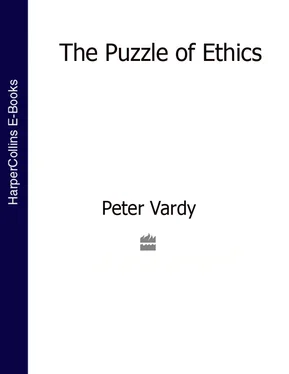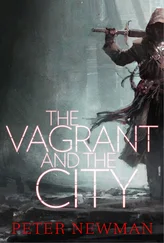The Mona Lisa is ugly, the United Nations is corrupt, democracy is the best political system and it is windy today
while the woman says:
The Mona Lisa is beautiful, the United Nations is trustworthy, democracy is wrong and there is no wind today.
Protagoras’ view would hold that these statements do not contradict each other – rather both individuals are expressing their own point of view, their own way of looking at different things. It would make no sense to ask whether the Mona Lisa is beautiful in itself or whether the United Nations is corrupt in itself.
Plato asks Protagoras whether the same relativism holds true in the moral field. Protagoras has a problem here because he is a teacher and his role as a teacher would be undermined if everyone’s judgement is equally valid. If this was the case, then Protagoras has no right to teach his own doctrine (that the human individual is the measure of all things) – because this is his point of view which is no more right or wrong than anyone else’s. Protagoras’ answer to this is that some men produce better results by their judgements than others – however he still has the same problem. Is there some absolute sense of what is a ‘better result’? Protagoras’ own view means that he must deny this, but he needs to hold this position in order to answer Plato’s challenge.
Protagoras tries to argue not that what is right or wrong depends on the individual but that it depends on the state or city in which one lives. Thus he says:
Whatever in any city is regarded as just and admirable is just and admirable in that city for as long as it is thought to be so. ( Theatetus , 167C)
This is an important view with great contemporary relevance. You cannot ask ‘What is good?’, but only ‘What is good in the United States?’ or ‘What is good to the Christian?’ or ‘What is good to the Hindu?’. If you would ask the question ‘How should I live?’, then the only reply on this basis is that you should live according to the rules, laws and morals of the state or society or community in which you live (this position is similar to that taken by the Victorian philosopher, F. Bradley, in his book Ethical Studies ). On this basis, the conventions of our society rule. However, the problems in today’s multi-cultural society are all too evident – which community should one choose to belong to? Whose morals should I follow? Protagoras’ approach provides no satisfactory answer to these questions.
ii) The Forms and the task of the philosopher
There are many beautiful things in the world – the countryside, a baby’s first cry, the first rose of summer or a sunset. These things are all very different yet they may all be termed beautiful. Plato considered that if words like ‘beauty’, ‘justice’ or ‘good’ were applied in so many different situations, they must all have something in common. He argued that everything that we see in the world that we call beautiful in some way participates in or resembles the perfect Form of Beauty. The Form of Beauty (as of Justice, the Good, etc.) exists timelessly and spacelessly – the Forms are neither created nor do they create. Beautiful, just or good things or persons in some way, albeit imperfectly, resemble these Forms. The Forms represent Absolute Reality as opposed to the many particular things which in some small way resemble them.
If, therefore, we were to ask how it is that two people both know a carpet is red or that two people both know that the first rose of summer is beautiful, then Plato’s answer would be that since the redness of the carpet in some way resembles the perfect Form of Redness and the characteristic of the rose in some way resembles the perfect Form of Beauty, so the two people both rightly see the carpet as red and the rose as beautiful. Similarly, disputes about whether an action is good could be settled by determining whether the action can be compared with or participates in the Form of the Good.
We live in a spatio-temporal world. The whole of our world is dominated by space and time. The Forms, however, are timeless, spaceless, changeless and immutable. Plato considered that matter, the raw chaotic ‘stuff’ of the universe, is everlasting – without beginning and without end. The Demiurge, Plato’s God, took this chaotic matter and moulded or formed it into the orderly universe that we know – using the Forms as a model. However the Universe is not perfect because the Demiurge had to work with pre-existent matter which resisted his will and also because the Universe is temporal and spatial.
The world, for Plato, is a dance of shadows – we live in the shadows brought on by time and space and our task as human beings is to see beyond these shadows. Plato puts forward three famous analogies which express this view – the Sun, the Twice Divided Line and the Cave. The last will be dealt with here although the first is also important and worthy of reference (see The Republic p. 274 Penguin edition):
Imagine an underground chamber, like a cave with an entrance open to the daylight and running a long way underground. In this cave are men who have been prisoners there since they were children, their legs and necks being so fastened that they can only look ahead of them and cannot turn their heads. Behind them and above them a fire is burning, and between the fire and the prisoners runs a road, in front of which a curtain wall has been built, like the screen at puppet shows between the operators and their audience … Imagine further that there are men carrying all sorts of gear along behind the curtain wall, including figures of men and animals made of wood and stone and other materials, and that some of these men, as is natural, are talking and some not.
Socrates then says that the bound men would only see the shadows and they would assume that the shadows were the real thing and if the curtain wall reflected sound they would assume that the shadows were talking – in other words they would take the shadows to be real. Having established this scenario, Socrates continues:
Suppose one of (the men) were let loose, and suddenly compelled to stand up and turn his head and look and walk towards the fire; all these actions would be painful and he would be too dazzled to see properly the objects of which he used to see the shadows. So if he was told that what he used to see was mere illusion and that he was now nearer reality and seeing more correctly, because he was turned towards objects which were more real … don’t you think he would be at a loss and think that what he used to see was more real than the objects now being pointed out to him?
Socrates’ point is that if someone looked directly at the light of the fire he would be even more dazzled than if he looked at the objects on the road between the fire and where he was bound. If he was then dragged out of the cave and saw the sun for the first time, he would be more dazzled still. In fact he would not initially be able to see anything of those things which he was now told were real. Gradually he might become accustomed to shadows outside the cave, then to other objects and finally he might be able to look at the Sun itself. The Sun stands for the Form of the Good – which is the highest of the Forms. Socrates’ point is that the philosopher is like the man who has been untied – it is a singularly painful process to be freed from the delusion of supposed reality, from the ‘dance of shadows’ that represents the world as it appears to us. It is a long and painful journey out of the cave of misunderstanding before one can begin to see reality as it is. Once someone has done this, then those things that passed for knowledge and were most prized by those tied in the cave would no longer be of any importance. As he puts it:
There was probably a certain amount of honour and glory to be won amongst the prisoners, and prizes for keen-sightedness for anyone who could remember the order or sequence among the passing shadows and to be best able to predict their future appearance. Will our released prisoner hanker after these prizes or envy their power or honour? Won’t he be more likely to feel, as Homer says, that he would far rather be a ‘serf in the house of some landless man’, or indeed anything else in the world, than live and think as they do?
Читать дальше












